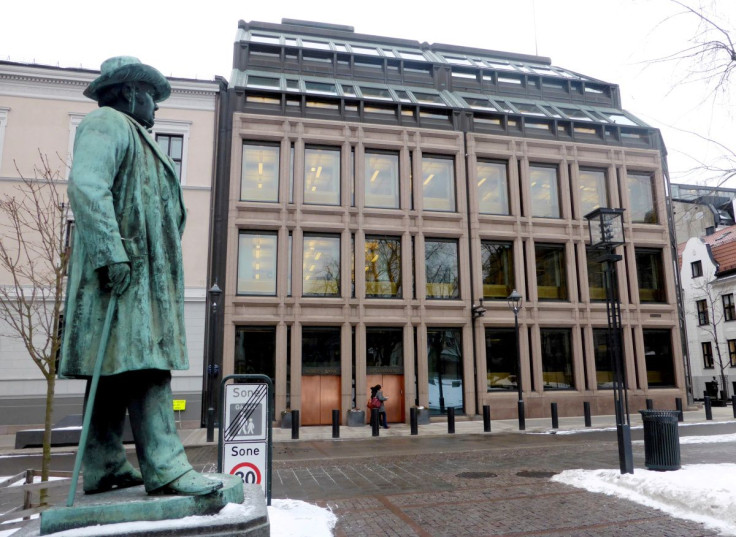Norway Central Bank Makes Largest Rate Hike In 20 Years

Norway's central bank raised its benchmark interest rate by 50 basis points on Thursday, its largest single hike since 2002 and twice as much as expected by most economists, and plans to hike again in August as the country seeks to control inflation.
Norges Bank's monetary policy committee raised the sight deposit rate to 1.25% from 0.75%, exceeding its own forecast made in March of a hike to 1.0%.
"Based on the committee's current assessment of the outlook and balance of risks, the policy rate will most likely be raised further to 1.5% in August," Governor Ida Wolden Bache said in a statement.
"A faster rate rise now will reduce the risk of inflation remaining high and the need for a sharper tightening of monetary policy further out," she added.
Of the 20 economists polled by Reuters in advance of Thursday's announcement, 14 had predicted Norges Bank would hike by 25 basis points (bps) while six said a 50 bps increase to 1.25% was the most likely outcome.
The Norwegian currency, the crown, firmed to 10.48 against the euro at 0823 GMT from 10.51 just before the rate announcement.
The central bank predicted the policy rate could rise to 3% by mid-2023, having previously pointed to a rate of 2.5% by the end of that year.
"(This) underlines how stressed central banks are over inflation," tweeted Torbjoern Isaksson, chief analyst at Nordea Markets in Sweden.
Norges Bank cut its growth forecast for the Norwegian mainland economy, which excludes oil and gas output, to 3.5% for 2022 from 4.1% seen in March.
It raised its core inflation forecast for 2022 to 3.2% from 2.5%, and lifted the prediction for 2023 to 3.3% from 2.4% seen three months ago.
The central bank targets core inflation of 2.0% over time.
Central banks globally are struggling to contain surging prices in the wake of the COVID-19 pandemic and Ukraine war, leading to a 75 basis point U.S. Federal Reserve rate rise last week, a surprise hike by the Swiss National Bank and new policy tools at the ECB.
© Copyright Thomson Reuters 2024. All rights reserved.











